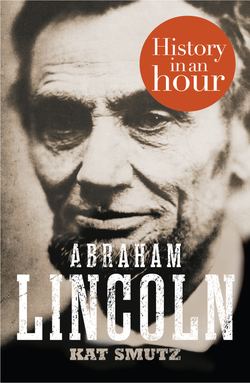Читать книгу Abraham Lincoln: History in an Hour - Kat Smutz, Kat Smutz - Страница 8
A POLITICIAN IS BORN
ОглавлениеLincoln realized that people loved to hear his tall tales as much as he loved to tell them. The value of such a talent to a politician was not lost on him. In 1832, he announced his candidacy for the Illinois General Assembly and began ‘stumping’.
‘Stumping’ is a term that originated on the American frontier. A speech given by a candidate running for public office provided rare entertainment and usually drew a crowd. The candidate required a perch that allowed him to be seen and heard over the heads of his audience. Tree stumps were usually readily available in growing communities where land was being cleared, and candidates made use of them as a podium from which to speak.
Although he was generally known as a gentle man, an event that took place when Lincoln gave his first speech shows that he wasn’t afraid to use force when he felt it was needed. Lincoln stopped in the middle of the speech to remove a heckler. He walked through the crowd, lifted the man by collar and belt, and tossed him away before finishing his speech.
Lincoln was to lose the election. Politicians needed supporters then, just as they do today, but he had little education, no money and no powerful friends – all crucial in the pursuit of election. He was disappointed, but far from discouraged. He would make another attempt at election and indeed would never lose one again, or so he claimed. (His actual political history includes losing the Whig Party nomination to the United States House of Representatives in 1844. In 1858, he ran for the United States Senate seat held by Stephen Douglas and lost by eight votes.)
While he waited for his next opportunity to run for office, Lincoln took up whatever odd jobs he could find to make his living. With a partner, he bought goods on credit and opened a store in New Salem, Illinois. It failed and put him deeper into debt. He became postmaster of New Salem and tried his hand at surveying. He borrowed the two basic tools of the trade: a surveyor’s chain, used to measure distance, and a compass, used to determine direction. In his own words, he said that he ‘studied Flint and Gibson a little’, and ‘went at it’. It wasn’t lucrative, but Lincoln managed to earn enough to support himself and pay off his debts.
It was in 1834 that he and Major John Todd Stuart met following their election to the Illinois State Legislature. Stuart was a lawyer by trade and offered to lend his law books to Lincoln. Between legislative sessions, Lincoln studied, and in 1836, earned his law licence. He moved to Springfield, Illinois, a year later to join Stuart in his law practice.
Major John Todd Stuart, Lincoln’s law partner in Springfield, Illinois.
Once again, Lincoln’s gift for oration proved an asset. He was as successful at arguing in court as he was at giving speeches. Lincoln was re-elected to the state legislature in 1836, 1838 and 1840. He declined to accept the 1840 legislative term to focus on his law career. He and Stuart were partners for four years. He partnered for three years with Judge Stephen T. Logan, until 1844, when Lincoln became partners with William Herndon. They remained partners until Lincoln’s death, after which Herndon became one of Lincoln’s many biographers.
